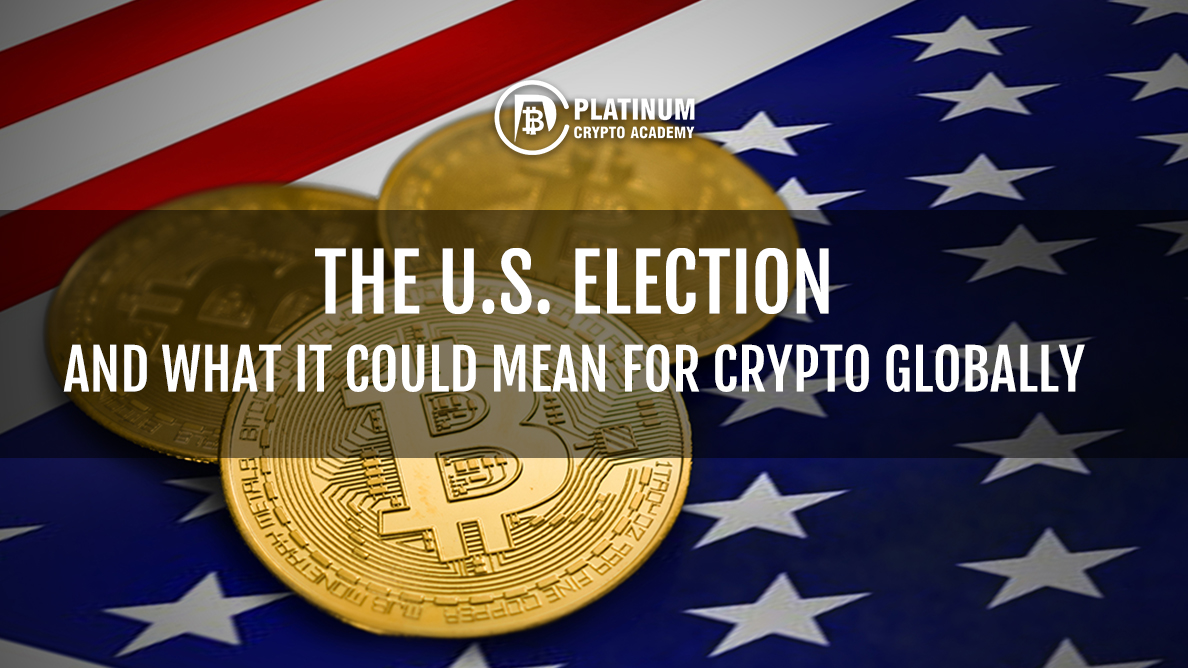Watching the build-up to the U.S. election from here in the UK, I’m reminded of just how much American politics can influence the world, especially when it comes to finance. Even though I’m far from Washington, the outcome of this election could have a profound impact on the future of crypto, not just in the States but internationally. As someone who’s keenly interested in the cryptocurrency space, I can’t help but keep an eye on how the next U.S. president might shape the industry.
There’s a growing sense within the crypto community that this could be a “crypto election.” With both parties receiving hefty donations from major crypto players, it’s clear the industry wants influence on both sides. And while the president alone won’t make or break crypto’s future, their stance on digital assets does matter. Here’s my take on where the candidates stand and what it could mean for those of us watching from the other side of the pond.
Americans Care About the Economy—Not Just Crypto
Now, as much as we in the crypto world might wish otherwise, most Americans aren’t all that concerned about crypto policies. Their main priorities are things we’re all familiar with economic stability, inflation, and the ever-rising cost of living. Surveys show that 44% of U.S. voters list the economy as their top issue. With inflation squeezing budgets, most people are more worried about day-to-day survival than the benefits of Bitcoin.
From my vantage point, the crypto community has long touted Bitcoin as a hedge against inflation, but for the average American—or Brit, for that matter—that narrative hasn’t exactly taken hold. To most people, Bitcoin still feels like a high-risk, speculative play, rather than a safe-haven asset. This public sentiment means crypto-friendly policies probably won’t win votes in the U.S. election, making the candidates less likely to make it a priority in their campaigns. Still, there’s more going on behind the scenes.
Why U.S. Crypto Companies Are Backing Both Sides
One interesting thing I’ve noticed is how crypto companies are donating to both U.S. political parties. Coinbase, Ripple, and major venture funds aren’t just backing one candidate: they’re spreading their support across the aisle. It’s smart, really. They know they’ll need allies on both sides, no matter who takes office.
For me, this bipartisan approach signals that the industry has matured. Rather than pinning all hopes on a single “crypto-friendly” candidate, companies are ensuring that they’ll have influence with whoever ends up in power. They’re less concerned about winning a specific figurehead and more focused on creating an environment where crypto can thrive, regardless of which party is in charge. This balanced strategy is reassuring, showing that the industry is here to stay, aiming to work within whatever regulatory framework arises.
Kamala Harris: Open to Innovation, But Vague on Crypto
Kamala Harris is an interesting candidate. She’s expressed a general interest in supporting innovation, and that includes tech areas like AI and digital assets. But her stance on crypto has been vague, almost as if she’s testing the waters but hasn’t fully committed to diving in. Her campaign has hinted at creating a regulatory framework for crypto, but without much detail, it’s hard to know what that would look like.
What raises my eyebrows, though, is her choice of advisers. Harris is closely connected to some prominent crypto critics, including Bharat Ramamurthy and Senator Elizabeth Warren, both of whom have been vocal about the need to regulate crypto more strictly. With advisers like that, I’d find it hard to believe that a Harris administration would suddenly open the floodgates for crypto-friendly policies.
It’s also worth remembering that Harris was part of the Biden administration, which put crypto sceptics like Gary Gensler and Janet Yellen in top positions. Her team has hinted at replacing Gensler, but it’s hard to say if that would make a real difference. For now, I’m not holding my breath for any pro-crypto shifts from her side.
Donald Trump: Crypto’s Surprising Ally?
Donald Trump’s stance on crypto has been all over the place. During his time in office, he made it clear he wasn’t a fan of Bitcoin, calling it “a scam” and claiming it was “based on thin air.” But since then, he’s done an unexpected about-face. Not only has he launched his own NFT trading cards, but he’s also reportedly involved in a DeFi project with his sons.
What’s especially interesting is that Trump now has some personal skin in the game. Between NFTs and DeFi, it seems he’s more invested in the industry than he was a few years ago. That could make it hard for him to revert to his old anti-crypto stance without it impacting his own ventures. His promises to reform crypto regulations, including firing Gensler and establishing a “national Bitcoin stockpile,” have excited many in the industry.
But I’m also a bit cautious. Trump’s support for crypto seems more opportunistic than principled. While his promises sound fantastic, it’s worth asking if they’ll materialize. That said, having a candidate who’s personally involved in the space does lend a bit more credibility to his pro-crypto stance, even if it’s hard to predict where he’ll stand if things get politically tricky.
Congress: The Real Decision-Maker for Crypto Regulation
Here’s a reality check: while the president’s views on crypto can shape market sentiment, it’s Congress that ultimately drafts and passes laws. Historically, only about 2% of bills are vetoed by presidents, so even an anti-crypto president would struggle to block a bipartisan effort to regulate the industry.
Right now, there’s some real momentum in Congress toward setting clear crypto regulations, with both parties showing interest in moving things forward. That gives me some hope that we’ll see clearer rules soon, regardless of who wins the White House. The Clarity for Payment Stablecoins Act, for instance, shows that crypto regulation is very much on the radar for U.S. lawmakers, and a lot of us are watching to see how it plays out.
In my view, it’s crucial that we don’t get too fixated on the president’s stance alone. Congress is where the real work happens, and if there’s bipartisan support, it won’t matter too much who’s sitting in the Oval Office.
What Will Happen to Crypto Prices Post-Election?
So, what about prices? If Harris wins, I suspect we might see a bit of market uncertainty. Given her ties to crypto critics, investors might hesitate, leading to a short-term dip. But if that happens, I think it’ll be temporary as the market adapts and realizes Congress holds the cards.
If Trump takes the win, we might see a short-lived boost, driven by his recent pro-crypto rhetoric and promises of regulatory reform. That said, it’s wise to keep expectations in check. Just because a president is friendly to crypto doesn’t mean they’ll instantly deliver on policy changes. The reality is that big reforms take time, and much of the work will rely on collaboration between the White House and Congress.
My Take: Focus on the Bigger Picture
From a UK perspective, this U.S. election is one to keep an eye on if you’re in crypto, but it’s not the be-all and end-all. Whoever wins, we’re likely looking at a gradual approach to regulation, driven more by Congress than by the president alone. Sure, a pro-crypto president would be nice, but it’s the legislative framework that will truly shape the future of the industry.
My advice? Don’t get too swept up in the headlines or the short-term market fluctuations that are bound to come with election hype. Instead, focus on the long-term potential of crypto. If the industry can secure regulatory clarity in the U.S., it’s only going to grow stronger, and that will benefit all of us, whether we’re in London, New York, or anywhere in between.
So, let’s keep our eyes on the broader landscape. This election is just one chapter in crypto’s story, but it’s a reminder of how far we’ve come—and how much farther we must go.
Hopefully, you have enjoyed today’s article. Thanks for reading! Have a fantastic day! Live from the Platinum Crypto Trading Floor.
Earnings Disclaimer: The information you’ll find in this article is for educational purpose only. We make no promise or guarantee of income or earnings. You have to do some work, use your best judgement and perform due diligence before using the information in this article. Your success is still up to you. Nothing in this article is intended to be professional, legal, financial and/or accounting advice. Always seek competent advice from professionals in these matters. If you break the city or other local laws, we will not be held liable for any damages you incur.


